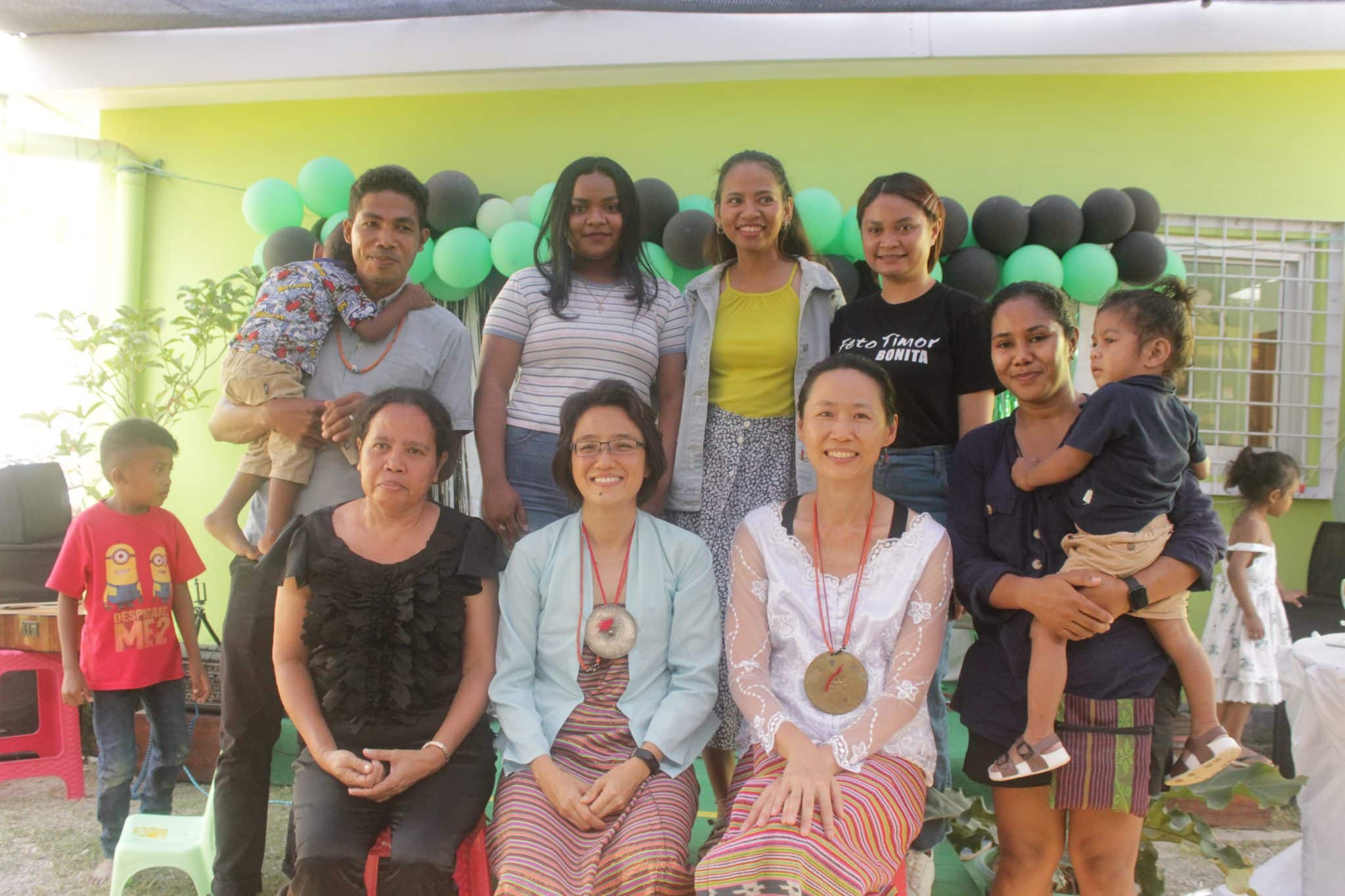“Your mission field could be just across the road”: AsiaCMS executive director Rev Dr Chan NamChen
Michelle Chun // November 29, 2022, 2:27 pm
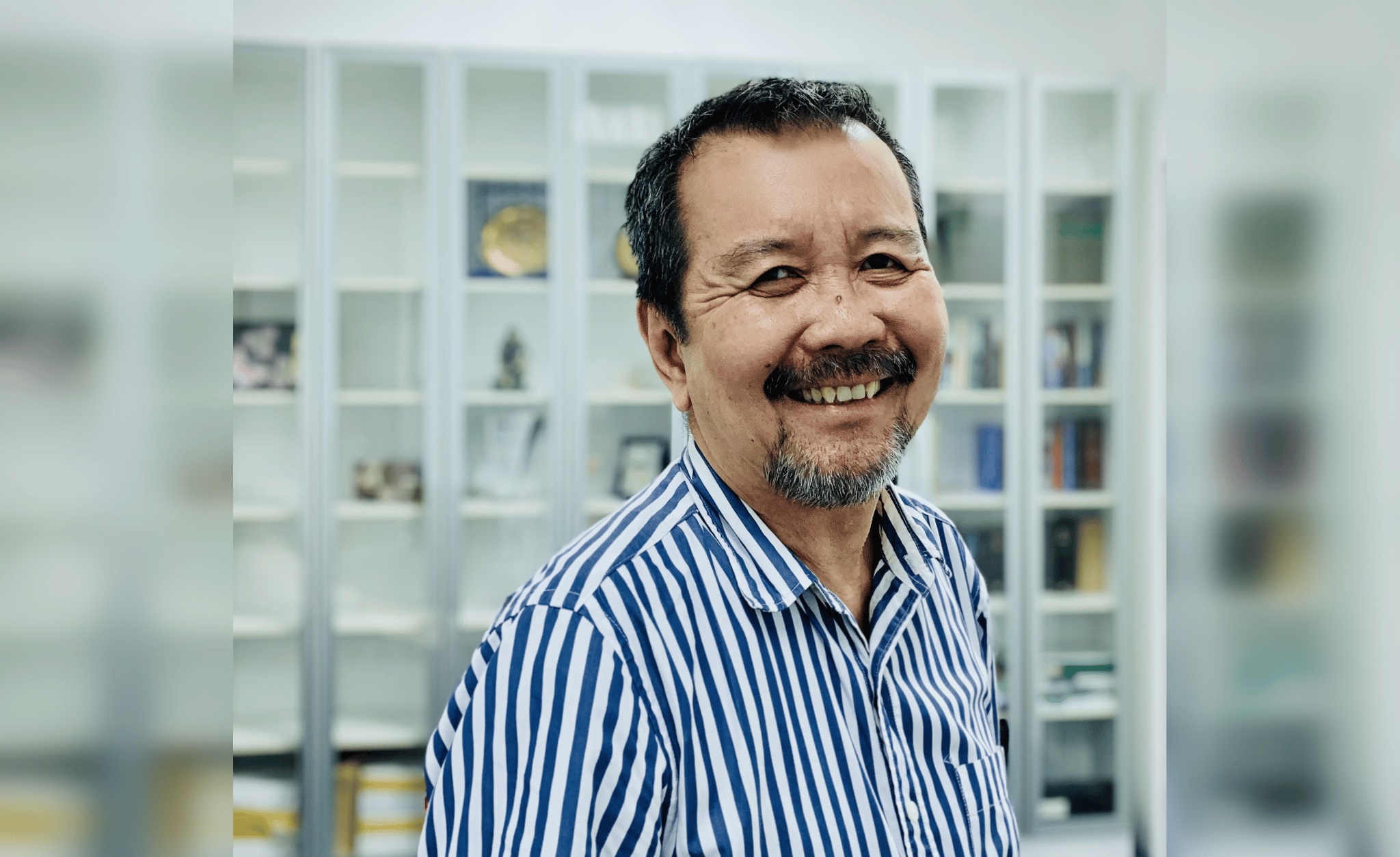
“The church has to be more realistic. You cannot think of missions just as sharing the gospel, you have to meet their immediate needs. This is a deeply biblical and theological issue," said Rev Dr Chan NamChen. All photos courtesy of Rev Dr Chan NamChen.
Rev Dr Chan NamChen came to know Jesus Christ in 1975 when a classmate shared the Gospel with him and led him in the sinner’s prayer. He was 15 years old.
“We say we care for people, but the point is not whether we care but if they know we care.”
It was a decision that would alter the course of the Malaysian’s life.
Today, NamChen holds a PhD in Intercultural Studies from Fuller Theological Seminary and is the executive director of AsiaCMS, a trans-denominational mission movement based in Kuala Lumpur, Malaysia and has been in cross-cultural missions for four decades.
Looking back, he remembers the days of his youth fondly, when the church’s four walls could hardly contain their zeal for the Lord.
“I was 15, our pastor was probably 19 years old,” he says with a laugh. “We were a bunch of 30 to 40 youngsters full of idealism, but all of us were convinced that Jesus was the hope of the world. And that was when life really began because I found my identity in Christ.”
“What hope is she living with?”
When NamChen was 17, he was travelling on a bus and looking out of the window when he spotted a frail, elderly woman selling ginger by the roadside.
“A life of missions is not something romantic, it’s touching those in need, talking about Jesus, praying for people.”
“It suddenly struck me, there and then. Here I am, with hope in Jesus. But for her, what hope is she living with?”
With these questions burning inside, he made a commitment to God that evening.
“Oh God, after I finish my studies, my goal is not to make a lot of money. I want to bring Your Gospel to the villages and rural areas, the people who have the least opportunities to hear or receive it,” he prayed.
It was a simple, earnest prayer by a young man with a burdened heart.
But those words uttered would soon lead him off the beaten track, to the kampungs (villages) and rural areas of Malaysia.
101 reasons not to go into full-time ministry
At the time, NamChen was doing well academically in school. His head was full of earthly dreams, but God had other plans.
A year after he prayed that earlier prayer, God spoke to him to give his life to full-time Christian ministry. It was at a youth camp.
The altar call was given, NamChen broke down in tears … and stayed in his seat.
In one of the services, while the preacher was still preaching, the Holy Spirit spoke in his heart: “NamChen, the preacher man is going to give an altar call for full-time ministry. When he does, I want you to go out for that altar call.”
The altar call was given, NamChen broke down in tears … and stayed in his seat.
“I had 101 reasons not to go into full-time ministry. Aside from my own inadequacies, coming from my background, Christianity was kind of viewed as anti-intellectual and becoming a full-time Christian pastor? I didn’t want that association.
“There was also a stigma surrounding full-time Christian ministry in Malaysia then, perceived by non-Christians that it was a choice you make when you don’t know what to do with your life.”
But after a season of wrestling, NamChen knew he had to obey the Lord’s call. He enrolled in Bible school in 1980.
In May 1982, while still a Bible School student, armed with faith and prayer, he pioneered a church in the seaside town of Sungai Pelek, Selangor – his first steps into a life of missions.
Serving indigenous communities
From 1982 to 1989, he planted a Tamil church amongst plantation workers as well as a church serving the indigenous Mah-Meri tribe, a previously unreached people group.
It was a journey of trial and error, starting from zero and referencing the book of Acts.
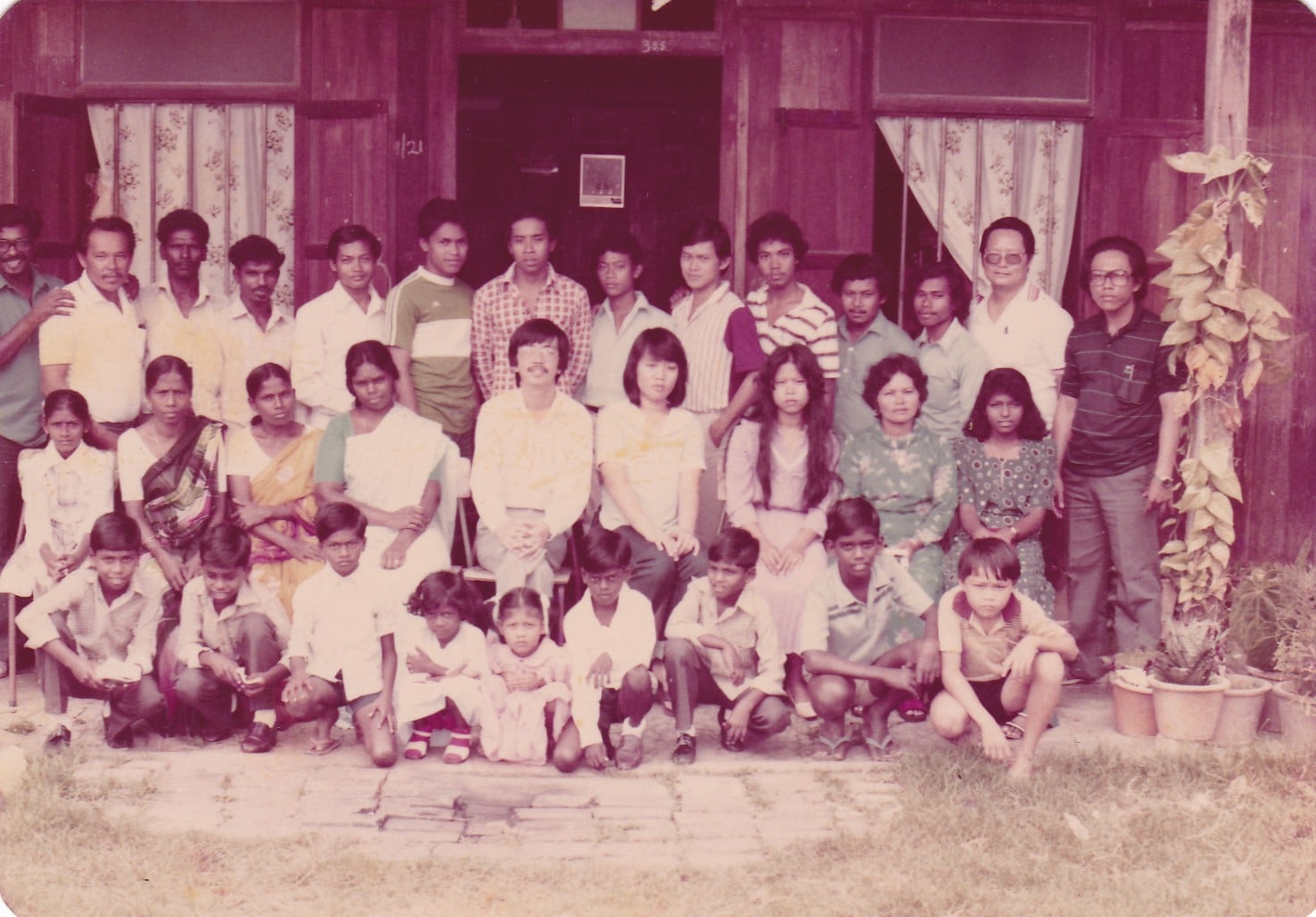
A church that NamChen pioneered in Sg Pelek, made up of Orang Asli and Tamil plantation workers, in the mid 1980s.
“Essentially, I was coming from a Pentecostal, fundamentalist background that equated missions simply to church planting. In that sense, my efforts were successful but I had many deeper questions about pastoring and the discipleship process,” he said.
Those years were not easy. Leading small churches in rural areas meant having to forgo many comforts of life. “They were poor, I was poor,” he admitted candidly.
NamChen also received offers from time to time from larger churches in Kuala Lumpur and other bigger cities, but as tempting as they were, he knew deep inside where God had called him to be.
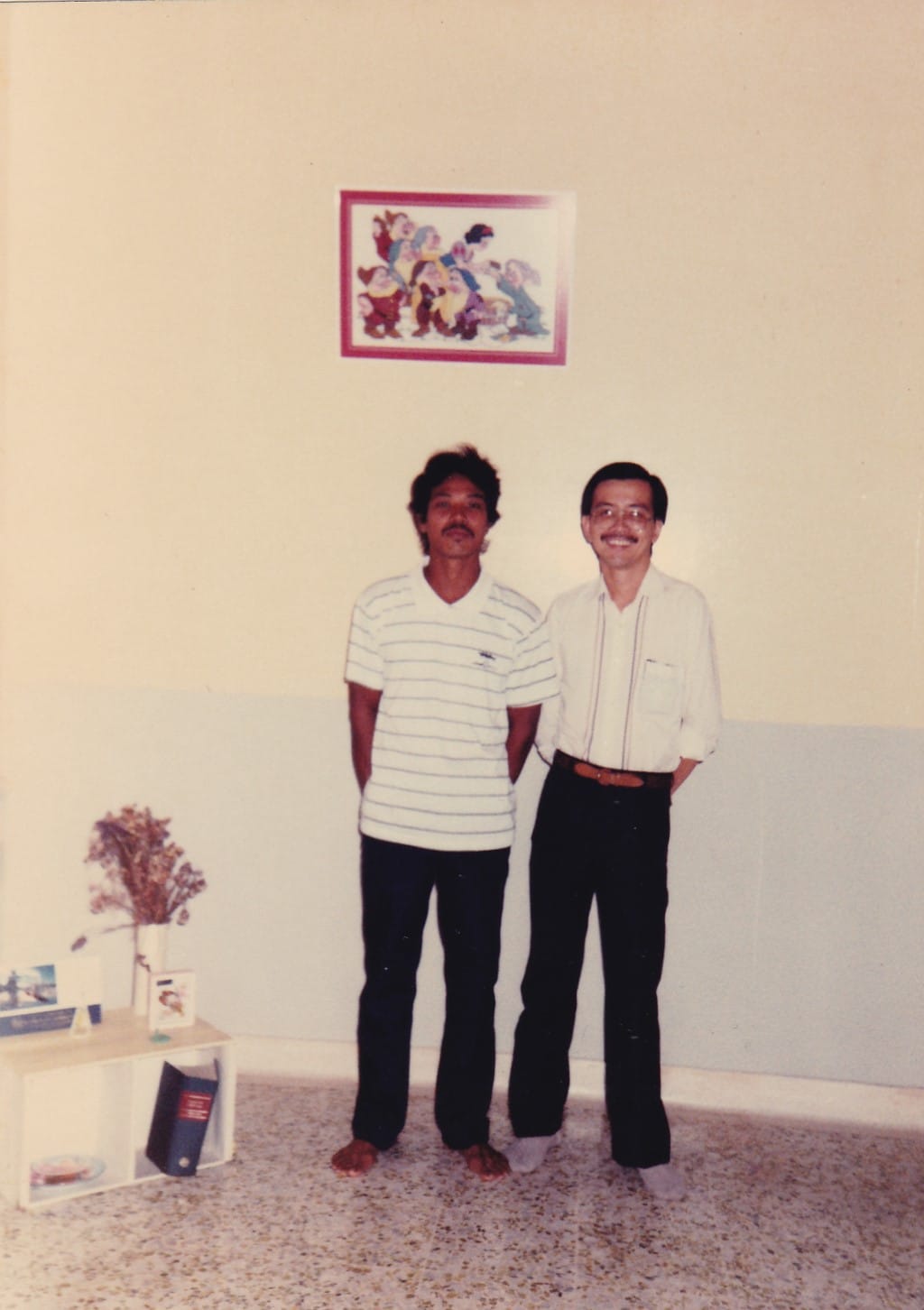
NamChen and Ps Bakar Mogot, an Orang Asli from Bukit Bangkung, Sg Pelek who received Christ as a teenager in 1982. He now pastors the church there.
“I had made a commitment. Whoever received Jesus, I would take care of them. So when the Orang Asli received Christ, I looked around for a nearby Bahasa Malaysia (BM) speaking church, but there was none at the time,” he said.
“They were poor, I was poor.”
NamChen had to develop his proficiency in BM. When writing out sermons, he would have the English Bible side-by-side with a BM Alkitab and he would painstakingly write down every word he wanted to say.
Many times it felt like he was back in school writing an essay for an assignment. He took five hours to write down his first sermon which was read in just five minutes!
But God knew whom He had called. Being one of the few pastors with some proficiency in BM at that time, he became the first BM Division supervisor for the Assemblies of God in Malaysia in the 1980s.
In 1988, NamChen had word from the Lord that he would be sent to East Malaysia. In August 1989, he received a phone call from a local church in Kota Kinabalu asking him to help spearhead a training centre for interior church planting.
He landed in Sabah for the first time in January 1990 and stayed for a decade building a Bible school and planting churches across the west coast and interiors of the state.
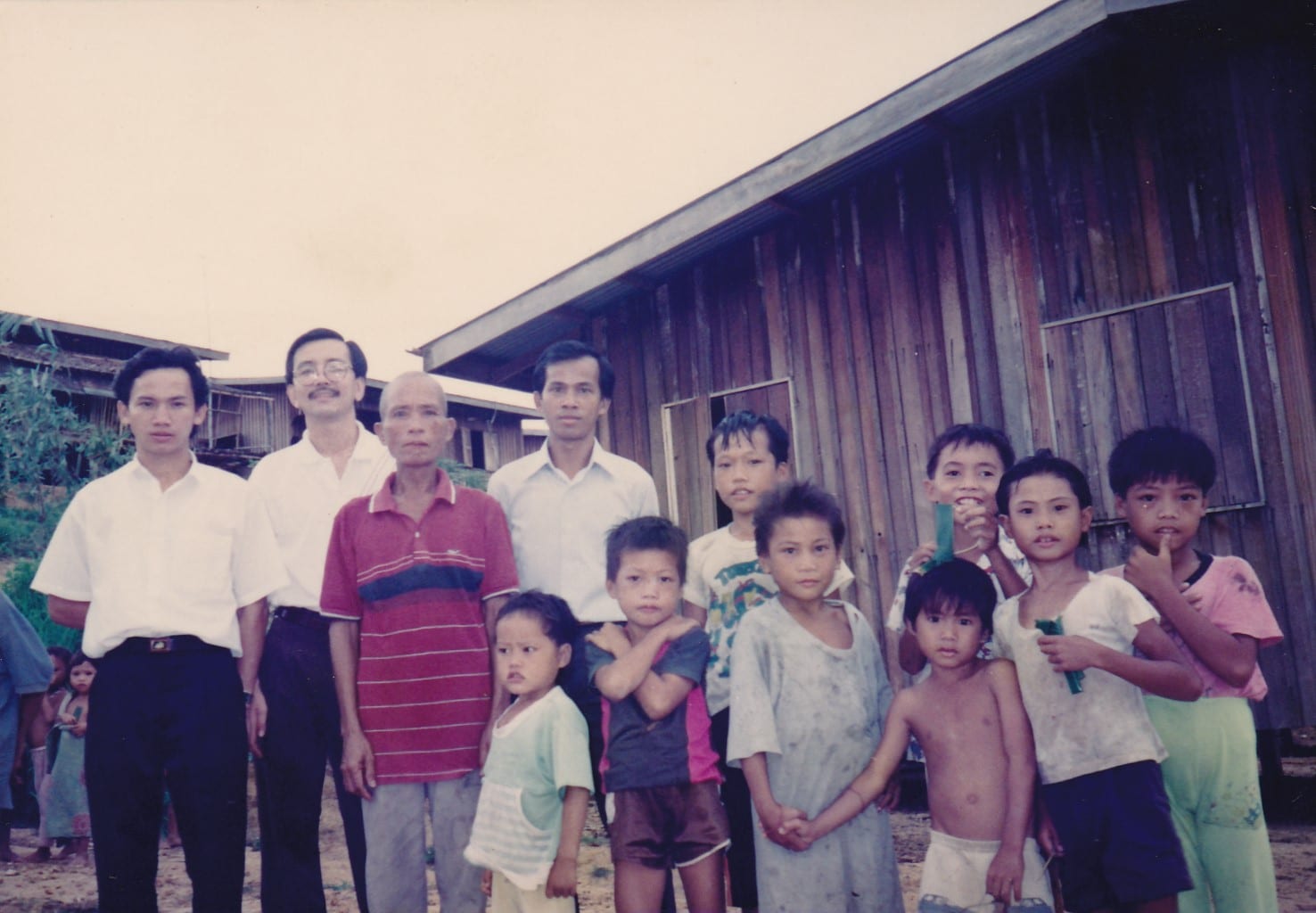
A Rungus (indigenous people group) church planted in Kudat, Sabah, 1990s.
“In Sabah, I was very intentional. Discipleship is the only way to multiply impact, so I asked God to use me as a teacher, discipler and mentor. By 1999, the outreaches and ministries I was responsible for had people in place who could do what I did, and I felt God say that my time in Sabah was up,” he said.
“Being mono-cultural is not biblical”
Having witnessed firsthand the impact of development on Malaysia’s indigenous people, forcing them to relocate to cities and struggling as the urban poor, NamChen decided to focus on understanding urban missions more.
When writing out sermons, he would have the English Bible side-by-side with a Bahasa Malaysia Alkitab.
He focused a lot of attention on urban poverty when he pursued his Master’s in Cross-cultural Studies at the Asia Theological Seminary in Manila.
“In missions, you can’t just think of getting people saved and into the church. That works with the middle class, not the poor,” he said firmly.
His focus was on urban poverty, and his passion for the least reached was still going strong. In 2001, he accepted the role of senior pastor at Kajang Assembly of God on the understanding that it expands in its contributions as a missional church.
Kajang AOG had four language services at the time; under NamChen’s leadership, the church added a fifth language service.
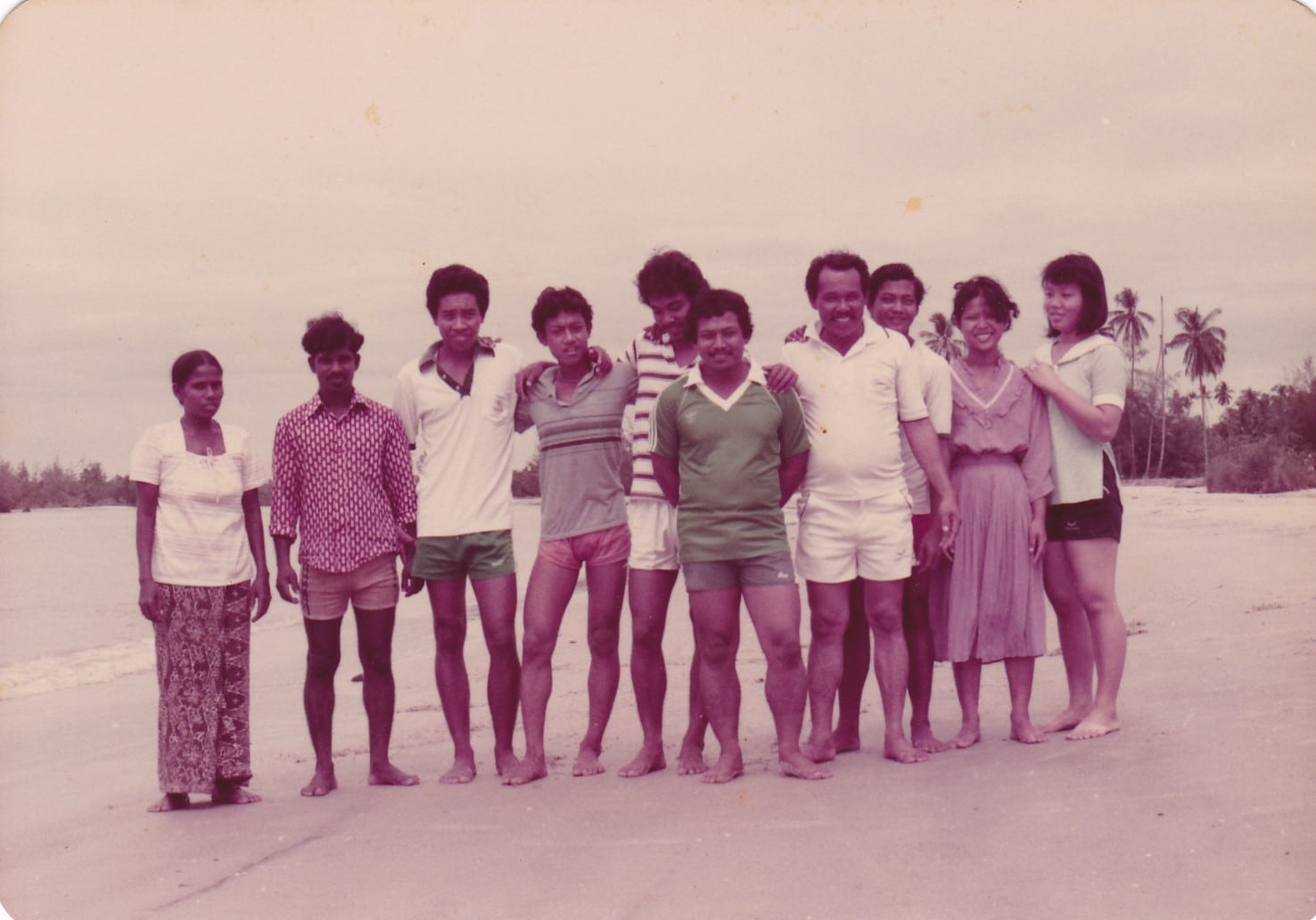
NamChen conducting water baptism for Orang Asli, Tamil and Chinese converts in the 1980s.
“To me, being mono-cultural is not biblical. We are supposed to be united as one, but if we keep others at a distance and just give money, that is incredibly patronising,” he explained.
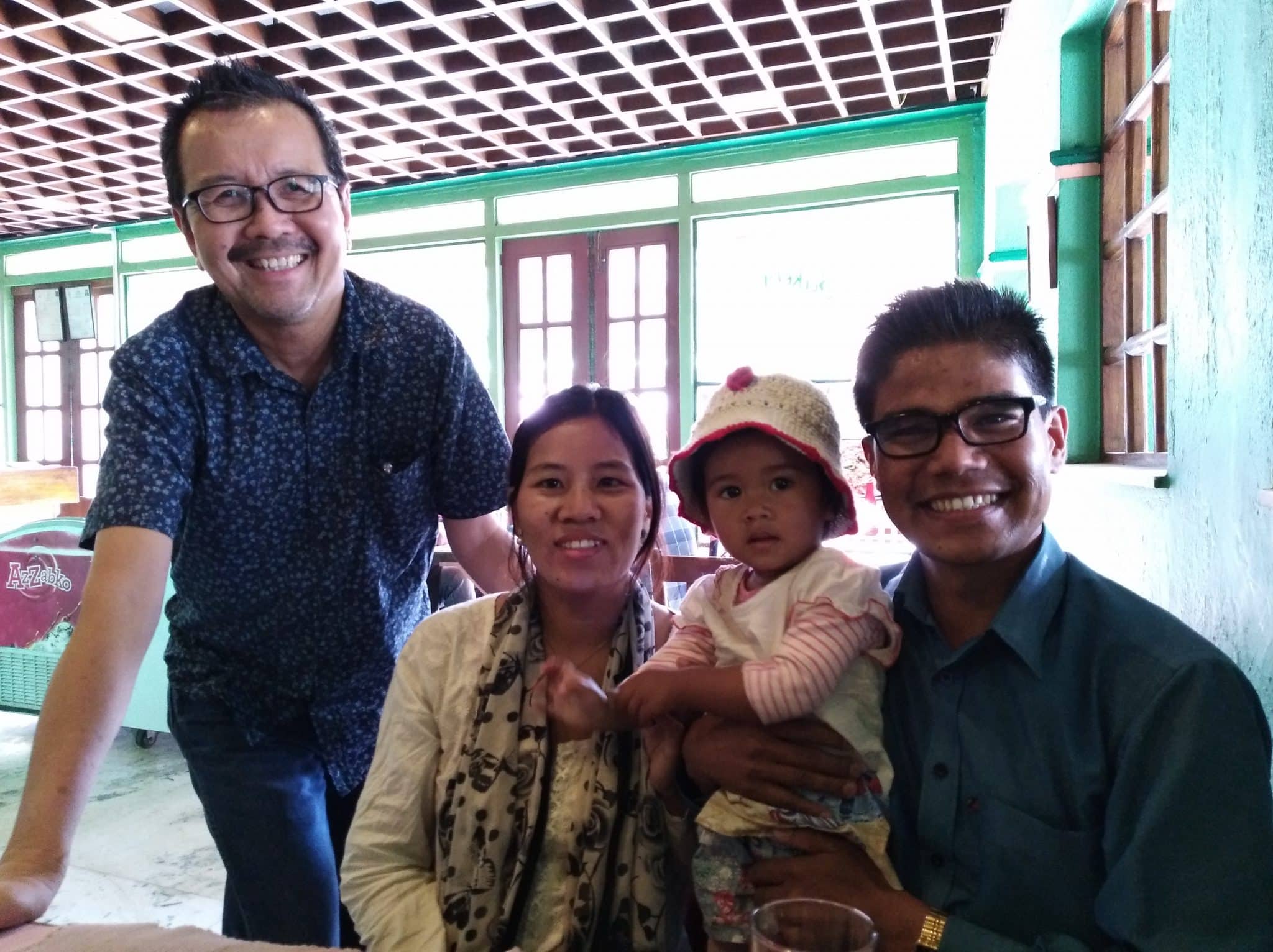
NamChen with Ps Simon Bharat and his family in Nepal. Ps Simon received Christ as a migrant worker in Kajang AG in the early 2000s, and later went into ministry with the church before returning to serve in his home country.
The church also sent home-grown staff to serve as long-term missionaries in China and Cambodia.
Migrants saved in the church returned to their home countries of Nepal and Indonesia to plant churches.
Culture affects how we lead and live
In 2016, NamChen completed his PhD in Intercultural Studies at Fuller Theological Seminary.
The perspectives in the Malaysian Church, he said, are largely dominated by the English-speaking middle class who assume their norms are “normal”, subconsciously imposing certain values on others.
The English-speaking church is actually a minority in the Malaysian Church. About 70% of the Christians in Malaysia worship in BM-language churches.
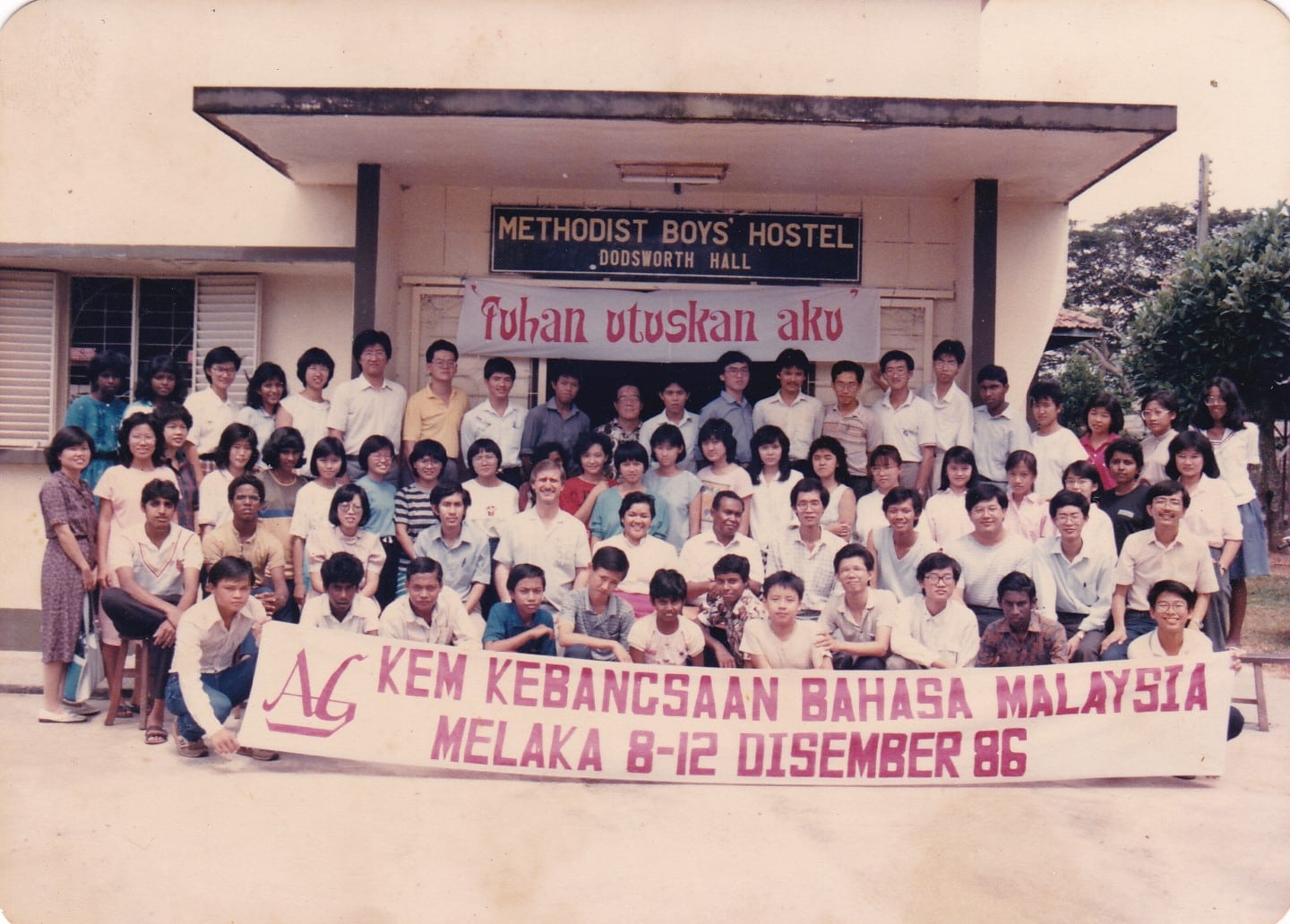
NamChen (second row, far right) at a National BM Camp by Assemblies of God Malaysia in Melaka, 1986.
“Your culture will influence how you interpret Scripture, how you exercise leadership, how you communicate and how you determine what touches your heart.
Yes, the Holy Spirit works, but how we work and respond is impacted by our culture. We say we care for people, but the point is not whether we care but if they know we care,” he said.
Rethinking the sphere of missions
NamChen took up the role of executive director with AsiaCMS in 2018.
The trans-denominational missions organisation is affiliated with the global Church Mission Society network but has a clear focus on supporting missions in Asia.
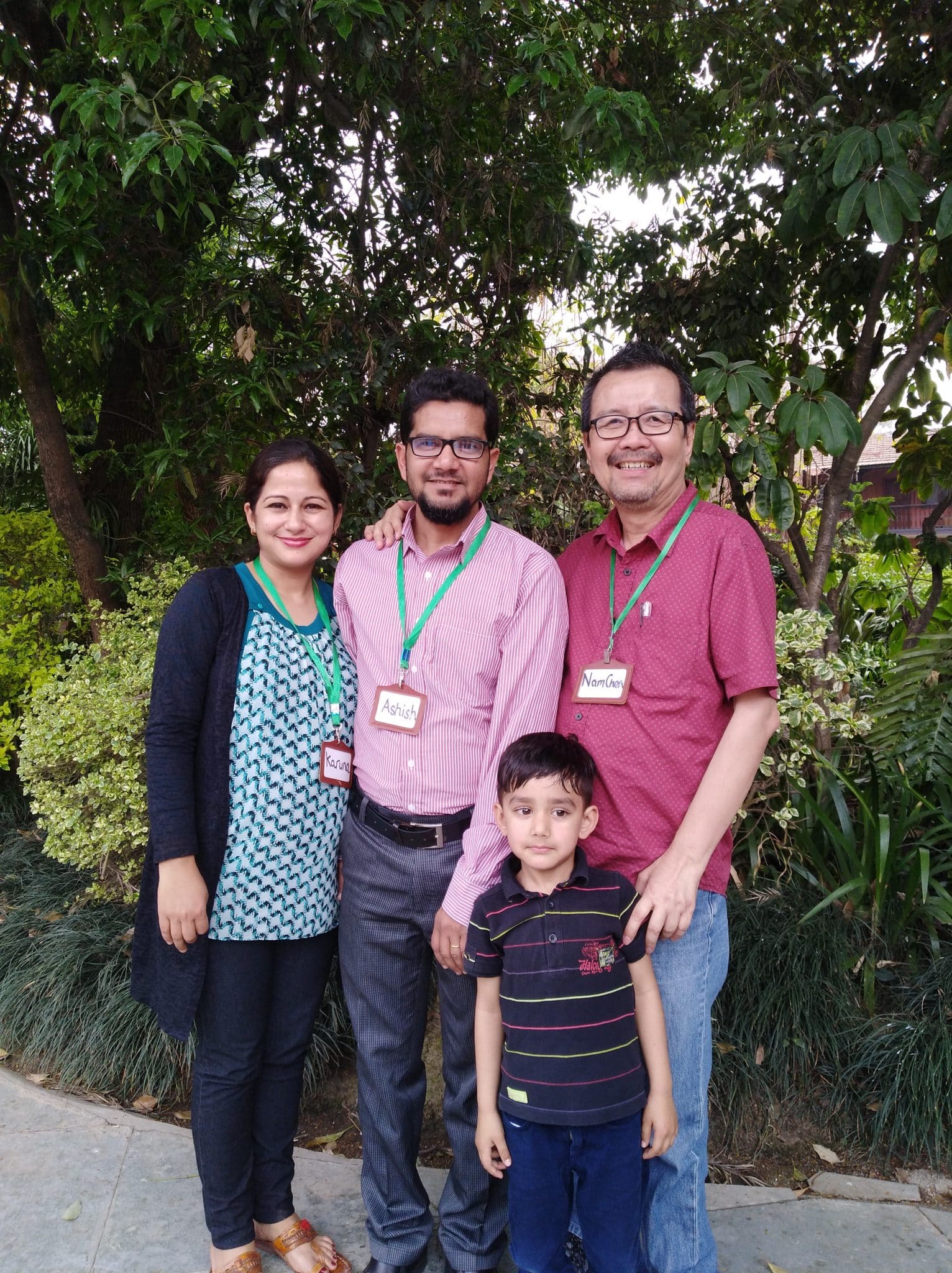
NamChen with AsiaCMS co-mission partners Ashish & Karuna Christian. Ashish is Indian, Karuna is Nepali. Both are now serving in KTM Nepal as trainers/lecturers. Karuna is now doing her PhD with Oxford Centre for Mission Studies (OCMS).
Today, AsiaCMS supports co-mission partners throughout Asia, each working in spheres of mission which may not necessarily fit the traditional “missionary” mould.
“In the past, the Gospel was essentially from the West to rest. Now it’s about the rest with the West to the rest.”
“Our tagline is Together on the Edge in God’s Mission; that means identifying issues on the margins and supporting practitioners and thinkers in Asia through connections and collaborations to catalyse new initiatives,” he said.
For example, AsiaCMS supports a couple who runs a Christian media production house in India and a missions partner in South Asia who incorporates Scripture into indigenous art forms.
“In the past, the Gospel was essentially from the West to rest. Now it’s about the rest with the West to the rest.
“The rest includes the West. Missions is not a competition about doing better than the other group down the road.
“The business of mission is about helping each other do better and be better,” he added.
Mission field across the road
NamChen challenges Christians to look at Acts 1:8 in a different light. In today’s globalised world, boundaries are no longer geographical. Instead, they are socio-economic and cultural. In other words, your mission field could be just across the road.
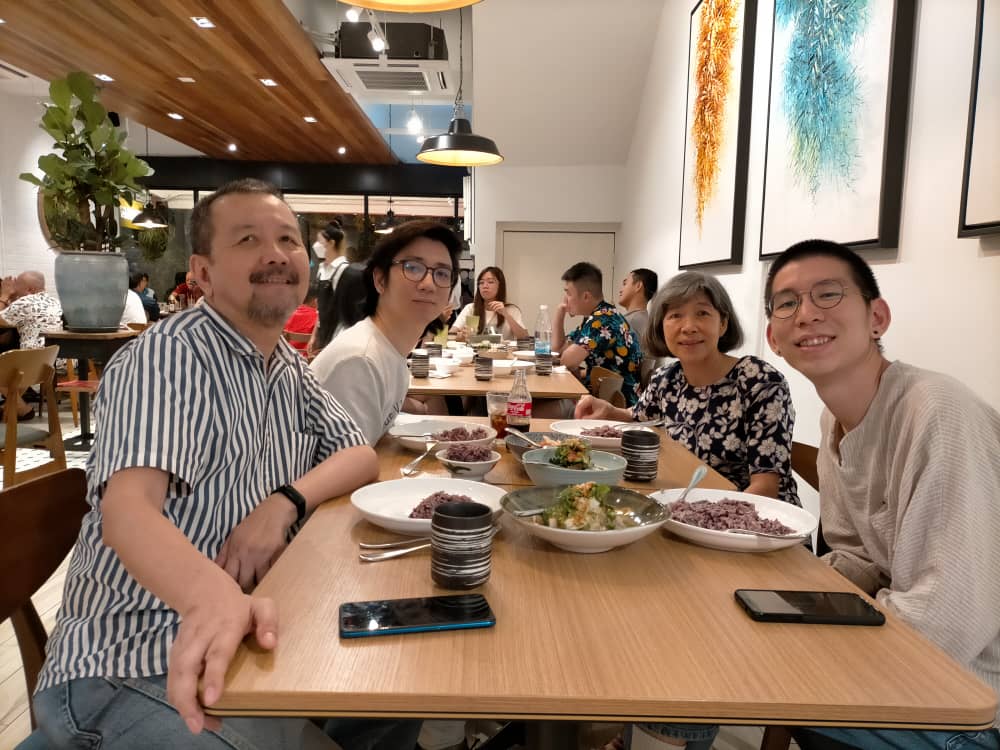
NamChen with his wife and two sons.
“The church has to be more realistic. You cannot think of missions just as sharing the Gospel, you have to meet their immediate needs. This is a deeply biblical and theological issue.
“In the past, we often understood missions as the Great Commission, but we need to see it from God’s eyes, from the perspective of the missio Dei, the mission of God,” he said, citing the Anglican Commission’s 5 Marks of Mission as a good reference point.
He also points out the critical need for collaboration. When you’ve been in missions long enough, he explained, you realise you need expertise and specialists in every area and that requires mobilisation of the entire Church.
Every Christian has a full-time calling
Over the years, NamChen has observed a gap between the local church and those who want to serve God in missions. He challenges churches to look beyond individual growth and build for the kingdom of God.
As for young Christians prayerfully considering a life of missions, he offers three points of advice:
- Get deep into the Word of God. The Bible is core and is central. Your church cannot teach you everything. Sometimes the local church only offers one perspective. As you dig in and dwell on the Word of God, you will gain a new perspective on how to live life in God’s way.
- Seek to excel, not just in your knowledge of the Bible but in whatever you do.
- Be willing to listen to your heart. God has placed within every single human being, deep inside, a desire and dream to make a difference to people around us and to our world. When you give your heart to God, that desire takes a quantum leap. If you dare to follow it, you’ll be amazed at where God can propel you.
With four decades of ministry and cross-cultural missions behind him, NamChen’s reflection is that God has a call for every person, and it is full-time. The difference is where you get your money and the work you do on a daily basis.
“When I look back at my own life, I can’t imagine doing what I’m doing now. It was simply because I dared to and was ‘foolish’ enough to take the steps of faith and follow dreams from God.
“That’s where you’ll make an impact,” he said.
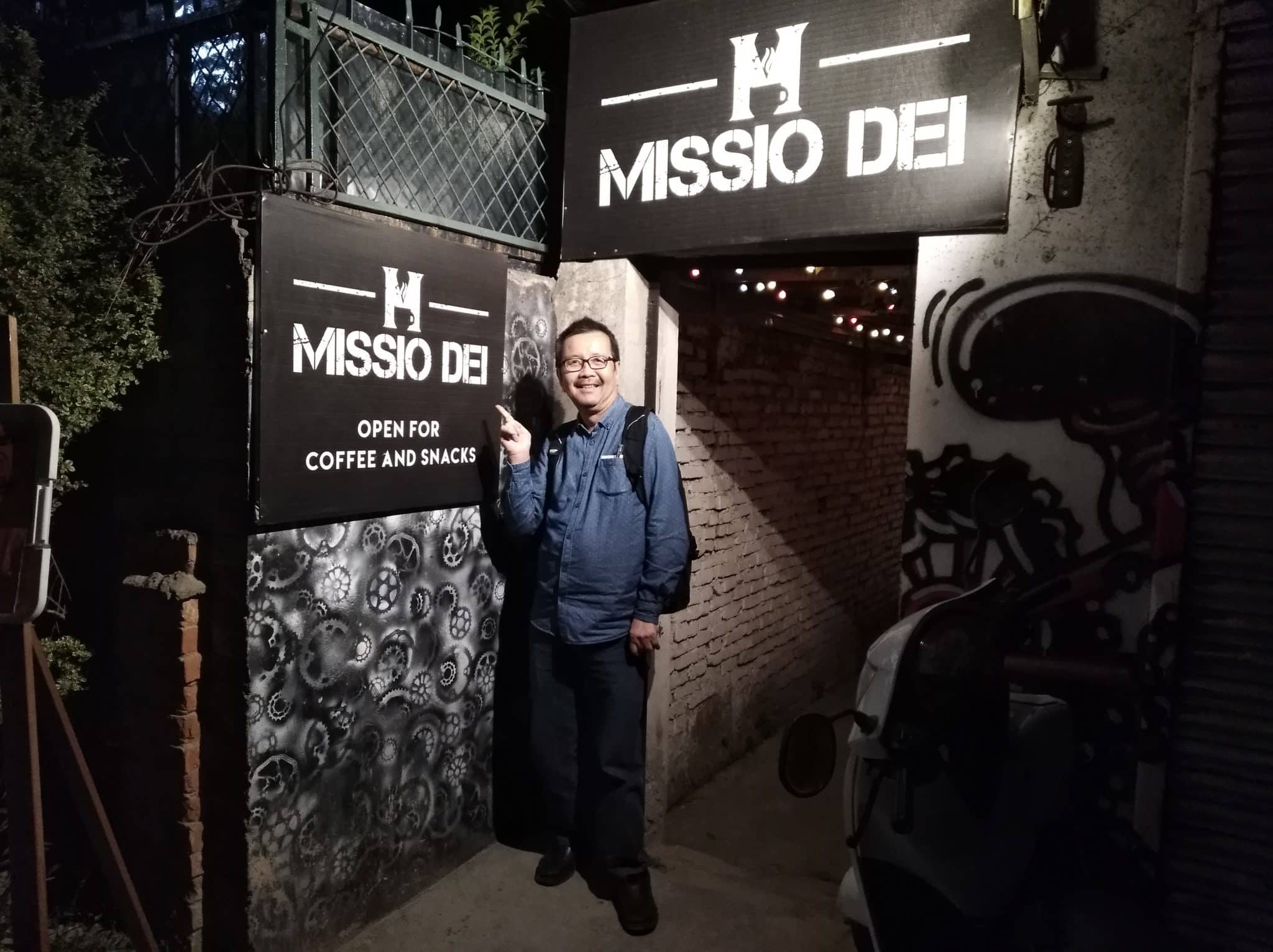
NamChen at a café called Missio Dei (God’s Mission) in Kathmandu, Nepal, 2018
Today, NamChen is a leader, minister, academic, speaker and mentor. But missions, especially among the least reached, has and always will be the fire within.
“A life of missions is not something romantic, it’s just where you are – touching those in need, talking about Jesus, praying for people,” he said.
“If we really love people, we will want to know who they are and seek to communicate the love of God in ways that make sense to them.”
RELATED STORIES:
“There was no big blueprint, just the fingerprint of God”: HealthServe’s Dr Goh Wei Leong
We are an independent, non-profit organisation that relies on the generosity of our readers, such as yourself, to continue serving the kingdom. Every dollar donated goes directly back into our editorial coverage.
Would you consider partnering with us in our kingdom work by supporting us financially, either as a one-off donation, or a recurring pledge?
Support Salt&Light

